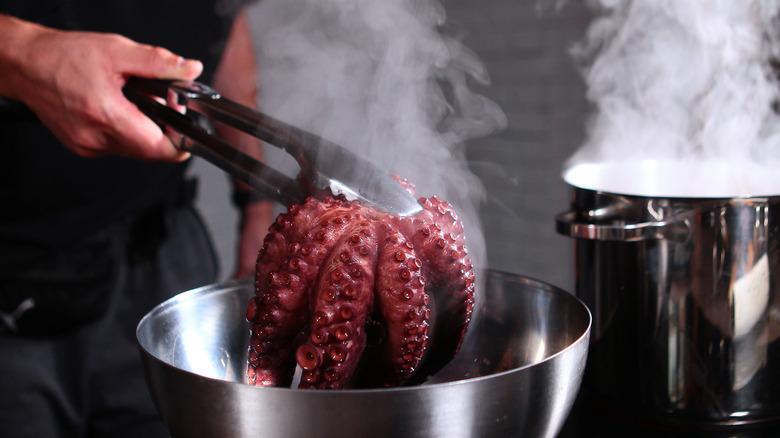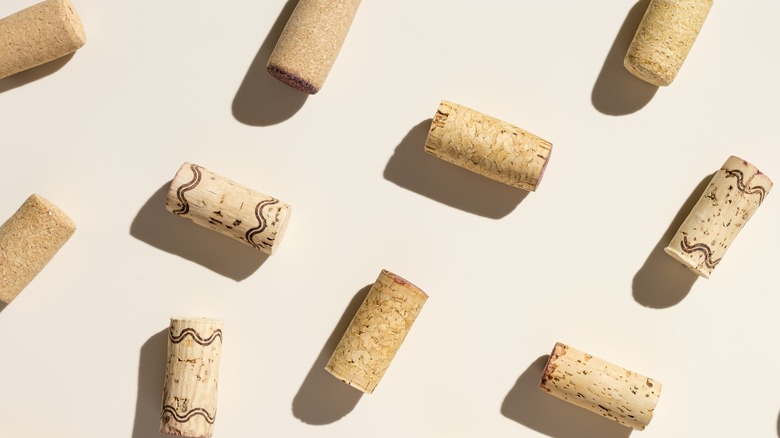The Old School Method Bobby Flay Follows For Tender Octopus
Cooking octopus can be intimidating, but also very rewarding. With a meaty texture similar to lobster, its suckers add a unique and unmistakable mouthfeel. Although the flavor of the seafood itself can border on bland, octopus lends itself perfectly to being brined in flavorful liquids, dusted with fragrant spices, or grilled on a smoky barbecue. The only thing that could ruin it would be overcooking. Luckily, Bobby Flay has a trick to avoid a rubbery wreck.
Of course, starting with fresh ingredients is key. If you're shopping for fresh octopus, avoid seafood that smells unpleasantly fishy. Bon Appétit notes that frozen can also be a good option, since the freezing and thawing process can help tenderize the meat also. Likewise, Wise Living Magazine recommends keeping an eye out for a double row of suckers on each of the octopus' eight limbs, which are thought to be an indicator of quality.
Generally speaking, timing is everything when it comes to ensuring a tender bite of octopus. Since squid is packed with collagen, Cook's Illustrated explains that a quick cooking process (like frying) prevents the squid's muscles from contacting and toughening, whereas a slow braise will eventually cause collagen to turn into gelatin that'll lubricate muscle. However, if you'd like some extra insurance, there's a hack Bobby Flay swears by.
Braising with wine corks
Like slamming octopus over the counter several times, there are endless old wives tales credited with making sure squid is anything but chewy. Epicurious even suggests dipping a whole cephalopod three times in simmering water before cooking to create a soft tangle of twirly tentacles. But the most unusual trick of all involves cracking open a bottle of wine.
According to the Food Network, Bobby Flay credits tender tentacles to braising octopus in a savory liquid that includes a couple of floating wine corks. "I've been doing it for 20 years this way," Flay explains, "They say there's an enzyme that makes [octopus] tender."
Although many other chefs swear by the technique, experts at LSG Group tested the theory and noted that corks, though a natural material, are often treated before sealing bottles, ridding them of any magical softening powers.
Not sure where you stand? Test out the cork method tonight with a recipe for citrus seafood salad and find out for yourself!

